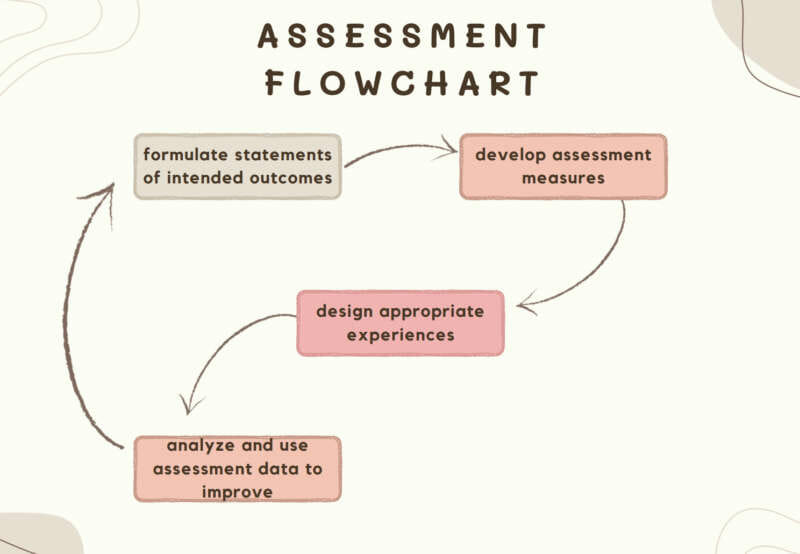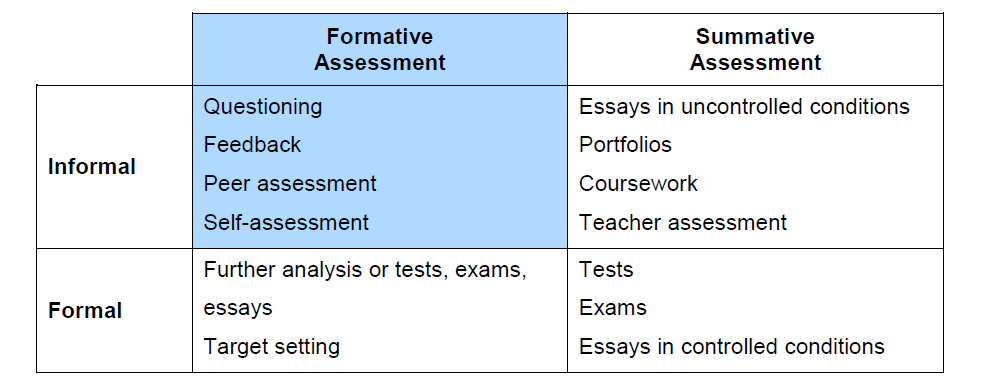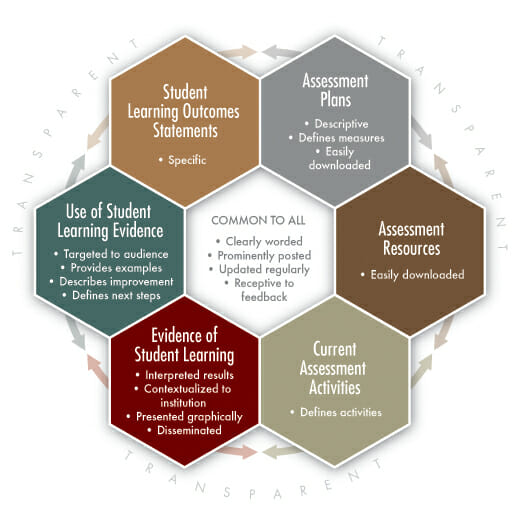ABCs of Assessment
A. Assessment builds Successful learning Cultures
At Shepherd, we use assessment to support learning in both curricular (academic) and co-curricular (everything that happens outside of the classroom) programs and offices. Assessment for learning approaches teaching and learning as a means of creating feedback used to improve students’ performance inside and outside of the classroom. Promoting student learning is at the heart of every assessment initiative. Student learning is the common goal that drives every department and program.
Assessment has the potential to promote an atmosphere of learning, cultural diversity, and curricular innovation. Assessment of student learning can build bridges between academic and student affairs, and between academic support programs and departments. Assessment results can be used to initiate or build service and academic programs and to show how we can best utilize our resources.

“Assessment of Student Learning is a participatory, iterative process that produces evidence that students are learning the outcomes you intended, guides you in making educational and institutional improvements, and evaluates whether changes made improve and impact student learning.” Higher Learning Commission, 2006
B. Assessment should be continuous
We support departments, programs and units to complete both formative and summative assessment since they both support each other and make the foundation for successful student learning, which is the goal of our university. The following table, based on the UK’s National Foundation for Educational Research report (NFER 2007), classifies types of formative and summative assessment as either formal or informal.
Shepherd’s cyclical university assessment of major and core courses, which happens on a 3-semester cycle of Fall, Spring, Fall, is a form of formal summative assessment. We use the results of this assessment to show stakeholders like our Board of Governors and the Higher Learning Commission that we are adding value to students’ learning and that we are consistent in our mission and vision across the university–and that is present in our classrooms and offices.
Some basic questions academic units can ask themselves to get started on assessment include:
- Plan – What do I want students to learn?
This stage includes formulating statements of Intended Learning Outcomes. - Do – How do I teach effectively?
This stage includes developing and selecting assessment measures and scaffolding appropriate experiences. - Check – Are my outcomes being met?
This stage involves evaluation of assessment data. - Act – How do I use what I’ve learned?
This stage involves reinforcing successful practices and making revisions to enhance student learning.
Some basic questions co-curricular units can ask themselves to get started on assessment include:*
- Plan – What do I want to learn about my unit?
This stage includes formulating statements of Intended Outcomes. - Do – How does my unit function most effectively?
This stage includes developing and selecting assessment measures and scaffolding appropriate experiences. - Check – Are my outcomes being met?
This stage involves evaluation of assessment data. - Act – How do I use what I’ve learned?
This stage involves reinforcing successful practices and making revisions to enhance student learning.
*Note: the questions are almost the same! We can and should talk about assessment in ALL units and programs across campus TOGETHER to build the most effective and efficient learning culture on campus that supports students, faculty and staff!
“Assessment is the intense investigation of whether our students are learning what we are teaching.” Trusteeship, 2007
National Institute for Learning Outcomes Assessment. (2011). Transparency Framework. Urbana, IL: University of Illinois and Indiana University, National Institute for Learning Outcomes Assessment (NILOA).
C. Assessment can be rewarding
Even though assessment activities are required for each department and unit on campus, they are also a meaningful way to gather feedback on your unit. As many have discovered, assessment can actually be an interesting and rewarding process!
Assessment is flexible and approachable, meaning that you can set goals for your unit and even get funded to carry them out (i.e.: ATF mini-grants for your work!).
If you’d like some help in developing your unit’s objectives, send us an email. We’re glad to help. We’ll even give you money if you present a really good idea.
Departments and units should begin preparing a plan early on in the semester so they have a month or two to reflect on their goals and revise programs where needed. Don’t put it off; you could be denying your students or fellow staffers an opportunity to be engaged in something altogether new and exciting!
External Guides and Resources
Assessment Resources by Department or Unit
Assessment Commons
AAC&U VALUE RubricsAssessment Glossary
Direct and Indirect Measures

